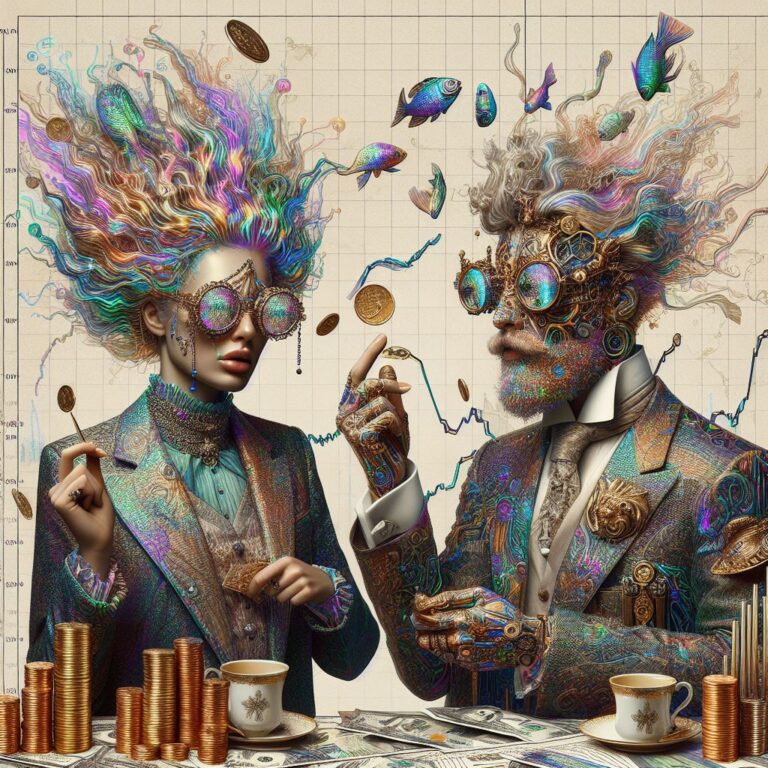A version of this was originally posted on my blog Sloth And Dignity on 3/31/12 @ 05:34 am.
A.) Do the odds of winning the lottery change if more people play?
B.) What if 5 people each flipped a coin. If the first four all land on heads, the odds of the fifth coming up heads also is much lower, isn't it?
Answers:
A.) Do the odds of winning the lottery change if more people play?
OK. For starters, let's call the lottery what it is: it's a gamble.
For purposes of illustration, we'll consider another gamble: a coin toss.
Before we look at the question of more people betting changing the odds of winning, think about this: if you flip a coin a certain number of times, there's only a certain number of possible outcomes. For instance, if you have three flips, they can come out 8 different ways:
1.) Heads, Heads, Heads
2.) Heads, Heads, Tails
3.) Heads, Tails, Heads
4.) Heads, Tails, Tails
5.) Tails, Heads, Heads
6.) Tails, Heads, Tails
7.) Tails, Tails, Heads
8.) Tails, Tails, Tails
So if you were going to bet on the outcome, and picked a sequence of three flips to bet on, it would be one out of the 8 above. So your odds of being right would be 1 in 8.
So, that's just you, alone. What happens if a bunch of people place bets on the outcome?
Those 8 possibilities stay the same even if a million people place bets on exactly which one of those 8 it will be. More people betting doesn't add new possible results, or take possibilities away. If you bet, you pick one of the 8 possible results, so your odds are 1 in 8. No matter what anybody else does.
What does change is the odds that _somebody_ will win, which may be what's confusing you. "What are my odds of guessing correctly?" and "What are the odds somebody will guess correctly?" are two entirely different questions.
If one person bets on the outcome of the three flips, the odds are 1-in-8 that they'll win. If two people bet, there's a small chance they'll bet on the same result, but if not, the odds that one of them will have it right will drop to almost 1 in 4, because between them they've now got 2 bets out of only 8 possibilities (but it's "almost" 1 in 4, not exactly 1 in 4, because there's a small chance they'll both guess the same results. If we added the restriction that they both HAD to choose different results, then between the two of them they'd have chosen 2 of the 8 possible results, or 1 in 4 odds of getting it right. But without that restriction, the odds are slighly less, because of the small chance they both might pick the same result.) By the time we've got 8 people betting, it's almost definite that someone will get it (again, "almost" because for it to be definite, each of the 8 would have to pick a different possibility, therefore covering all 8 possible outcomes and ensuring one of them gets it, which may not actually happen in real life... there's a chance two people may pick the same possibility, leaving one possibility unchosen, which makes it still possible that nobody will get it.)
BUT each one of them, individually, still only has 1-in-8 chances of getting it right, because they picked 1 possibility out of 8.
So, with 8 people betting, the answer to "What are my odds of guessing correctly?" is 1 in 8, but "What are the odds _someone_ will get it correct?" are pretty close to 100% (or 1 in 1.) The more people bet, the higher that second answer gets. But your individual odds, on a single bet, are 1 in 8—always, always, always. You make one bet, there's 8 possible outcomes, that's 1 in 8 odds for you. Period.
The same math applies if it's 5 flips, or pulling 6 balls out of 50 bouncing around a hopper. There's only a fixed number of possibilities, and if you place one bet, your odds of guessing right are 1 in that fixed number, no matter how many other people bet.
B.) What if 5 people each flipped a coin. If the first four all land on heads, the odds of the fifth coming up heads also is much lower, isn't it?
OK, I was going to demonstrate this with 3 coins to keep the list short, but screw it, let's do it with 5. There are 32 different possible outcomes if you flip 5 coins (I'll abbreviate Heads and Tails this time to make it easier to read):
1.) HHHHH
2.) HHHHT
3.) HHHTH
4.) HHHTT
5.) HHTHH
6.) HHTHT
7.) HHTTH
8.) HHTTT
9.) HTHHH
10.) HTHHT
11.) HTHTH
12.) HTHTT
13.) HTTHH
14.) HTTHT
15.) HTTTH
16.) HTTTT
17.) THHHH
18.) THHHT
19.) THHTH
20.) THHTT
21.) THTHH
22.) THTHT
23.) THTTH
24.) THTTT
25.) TTHHH
26.) TTHHT
27.) TTHTH
28.) TTHTT
29.) TTTHH
30.) TTTHT
31.) TTTTH
32.) TTTTT
Now, here's the distinction that tripped me up when I was just learning this stuff. If you look, HHHHH is 1 out of 32 possibilities. So you might think that the odds of 5 flips in a row being heads would be 1 out of 32. This is correct. And the next step from here is where most people get it wrong.
We know that the odds of 1 heads in 1 flip is 1 out of 2, or 50% (because it could be heads or tails.) But the odds of 5 heads out of 5 flips is only 1 in 32. So, what if 4 people flip, and all get heads? Is the odds of the 5th person's flip more than 1 in 2? Less than 1 in 2? Getting 5 heads in a row is so farfetched, four heads in a row has got to change the odds that the fifth will be heads, right? But how? Well, hold on to your seat, because I'm about to fuck you up with some truth:
If 4 people flip coins, and they all come up heads, the odds of the next flip being heads is 50%. Just like every time you flip a coin. Flipping 4 heads in a row doesn't affect the odds on the fifth flip at all. Here's why.
True, if we're going to throw 5 flips in a row, the above chart shows the possibillities. But once the first four flips have been done, the possibilities change, because some of what was possible four flips ago is no longer possible. Here's the chart, to demonstrate. Remember, 4 heads have already come up.
1.) HHHHH <- Still a possible outcome for the 5 flips
2.) HHHHT <- Still a possible outcome for the 5 flips
3.) HHHTH <- NOT a possible outcome, because the 4th flip was H
4.) HHHTT <- NOT a possible outcome, because the 4th flip was H
5.) HHTHH <- NOT a possible outcome, because the 3rd flip was H
6.) HHTHT <- NOT a possible outcome, because the 3rd flip was H
7.) HHTTH <- NOT a possible outcome, because the 3rd & 4th flips were H
8.) HHTTT <- NOT a possible outcome, because the 3rd & 4th flips were H
9.) HTHHH <- NOT a possible outcome, because the 2nd flip was H
10.) HTHHT <- NOT a possible outcome, because the 2nd flip was H
11.) HTHTH <- NOT a possible outcome, because the 2nd & 4th flips were H
12.) HTHTT <- NOT a possible outcome, because the 2nd & 4th flips were H
13.) HTTHH <- NOT a possible outcome, because the 2nd & 3rd flips were H
14.) HTTHT <- NOT a possible outcome, because the 2nd & 3rd flips were H
15.) HTTTH <- NOT a possible outcome, because, you get the picture by now
16.) HTTTT <- NOT a possible outcome, because, you get the picture by now
17.) THHHH <- NOT a possible outcome, because, you get the picture by now
18.) THHHT <- NOT a possible outcome, because, YGTPBN
19.) THHTH <- NOT a possible outcome, because, YGTPBN
20.) THHTT <- NOT a possible outcome, because, YGTPBN
21.) THTHH <- NOT a possible outcome, because, YGTPBN
22.) THTHT <- NOT a possible outcome, because, YGTPBN
23.) THTTH <- NOT a possible outcome, because, YGTPBN
24.) THTTT <- NOT a possible outcome, because, YGTPBN
25.) TTHHH <- NOT a possible outcome, because, YGTPBN
26.) TTHHT <- NOT a possible outcome, because, YGTPBN
27.) TTHTH <- NOT a possible outcome, because, YGTPBN
28.) TTHTT <- NOT a possible outcome, because, YGTPBN
29.) TTTHH <- NOT a possible outcome, because, YGTFPBN
30.) TTTHT <- NOT a possible outcome, because, YGTFPBN
31.) TTTTH <- NOT a possible outcome, because, YFGTFPBN
32.) TTTTT <- NOT a possible outcome, because, YFGTFPBFN
So, once we know for sure that the first 4 flips were heads, what is the real list of possible outcomes of 5 flips?
1.) HHHHH
2.) HHHHT
So the odds of getting 5 heads in a row, once you know that the first four are all heads, is 1 in 2... exactly the same as the odds of getting heads on any single throw.
This always shakes out the same. The odds of a given thing happening turn out to _never_ be affected by how many times in a row it has or happened before. Even though that doesn't make immediate sense and you have to work it through to see it. It's because people think that the "law of averages" is actually a law. It's not. It's sort of like parallel lines... it's a useful idea for describing some things, but doesn't actually exist anywhere in nature.
This is such a common misconception it has a name: "the Gambler's Fallacy"... the idea that there is such a thing as a "streak", that a run of particular results means the odds are different on the next result than they'd ordinarily be.
There's a deeper implication here, and this is where probability sheds light on reality.
The reason people believe in things like a "lucky streak" is because they see a run of a certain result, and attach a meaning to it. If you flipped a coin 5 times, and got 5 heads (HHHHH), you'd be like, "Wow! What are the odds?" But if you threw it 5 times, and got say, HTHHT, or THHTT, you wouldn't think it was anything remarkable.
But the fact is, HTHHT and THHTT are each exactly as unlikely as HHHHH.
The odds of any one of those results are 1 in 32. But we see HHHHH, and we attach a special meaning to it in our minds ("I must be really lucky!" or "God must have done it!" or "I should play the lottery today!") for no other reason than that the human mind likes obvious patterns and notices them more than it notices things that don't have obvious patterns.
So HHHHH seems like a real longshot, but any given combination of 5 heads or tails is just as unlikely, and, in fact, if HHHHH didn't come up occasionally—about once in every 32 groups of 5 flips—it would much much weirder than the fact that it does.
But since we don't assign any meaning to HTHHT or THHTT or TTTHT or HTHTT, we ignore them. They don't seem "lucky" like HHHHH. But getting any one of those is just as unlikely. The fact is, if you flip a coin 5 times you are going to get some result, and the odds of that result is going to be 1 in 32, regardless of what that result is. The only special thing or difference between HHHHH and any other outcome is in your head.
This is exactly the same as when you bump into someone you know on a train halfway around the world, or when you meet someone in some tiny military prison in the desert in some obscure Arab protectorate who turns out to know your best friend from your small hometown in Iowa. The odds are long, sure, but the odds of you bumping into *any* particular person in the world are exactly that long. The fact that in some cases it's someone who has some significance to you matters in your head, but not at all in reality. Having a past connection with someone doesn't change the odds or make it any more or less likely that you'd bump into them than anybody else, any more than attaching mental significance to "five heads in a row" means that 4 previous "heads" coin flips changes the odds that the next flip will come up heads. Some complete stranger who has nothing to do with you at all, it's _just_ as strange and remote a coincidence that they get seated next to you on a train in Kuala Lumpur than if it was someone you have some "connection" to. Because that connection is just an intellectualization, it doesn't affect odds.
The odds of being seated next to any one person, even a complete random stranger, are exactly the same as the odds of being seated next to one person you happen to have a past connection with.
Yes, you may say "But I only have met a few thousand people in my lifetime, whereas there are millions I haven't met, doesn't that mean the odds are much higher of being seated next to someone I haven't met?"
Nope! Not once you've already met them. That's because, what happened in the past doesn't matter. As an illustration: the odds of five heads in a row, before any flips at all, are 1 in 32. After the fourth heads in a row, though, the odds of getting 5 heads in a row are 1 in 2... not at all strange, same odds as any other flip.
In the same way, your odds they you will in the future meet someone somewhere and then later get randomly seated next to then halfway around the world are very remote, but—once you've already met them the first time, then your odds of getting seated next to them halfway around the world are not as strange, they're absolutely no different than the odds of getting seated next to anyone else. The fact that you met them before in the past is just something you attach importance to in your head, it doesn't affect the odds.
This is very beautiful, and broadly applicable, because it so clearly illustrates an important basic truth, which is: the universe really doesn't care what you think.
OK, for you or me, that's kind of depressing. But it makes up for itself by being a great card to be able to play on stupider people. And, in truth there is beauty, pretty much always, I figure.





